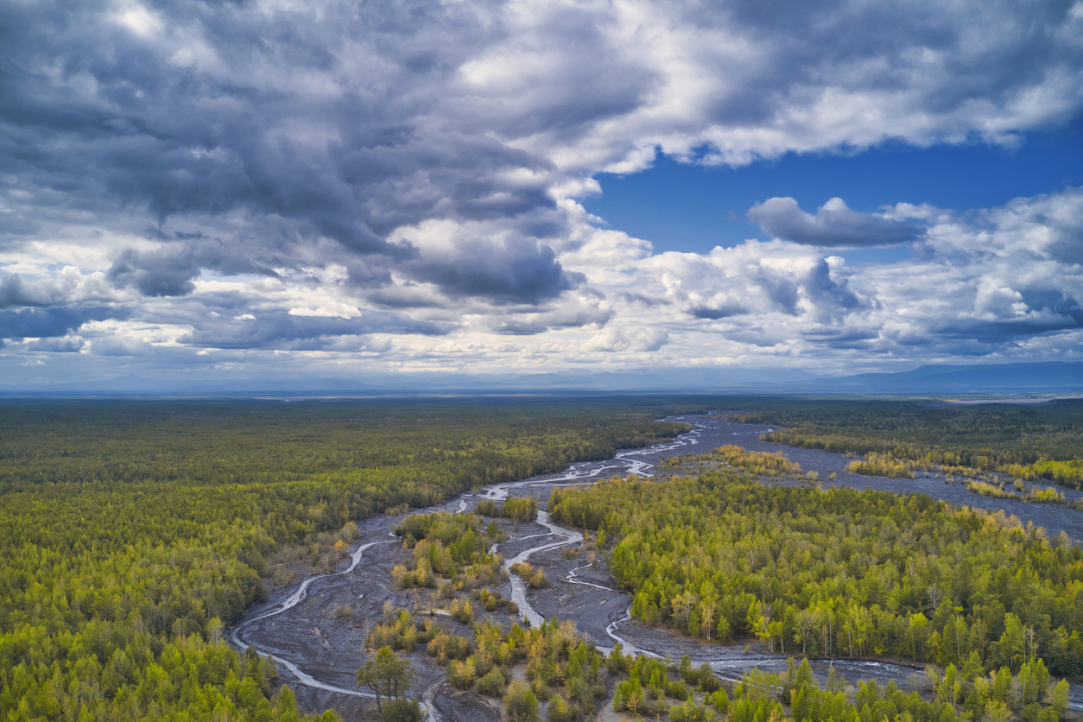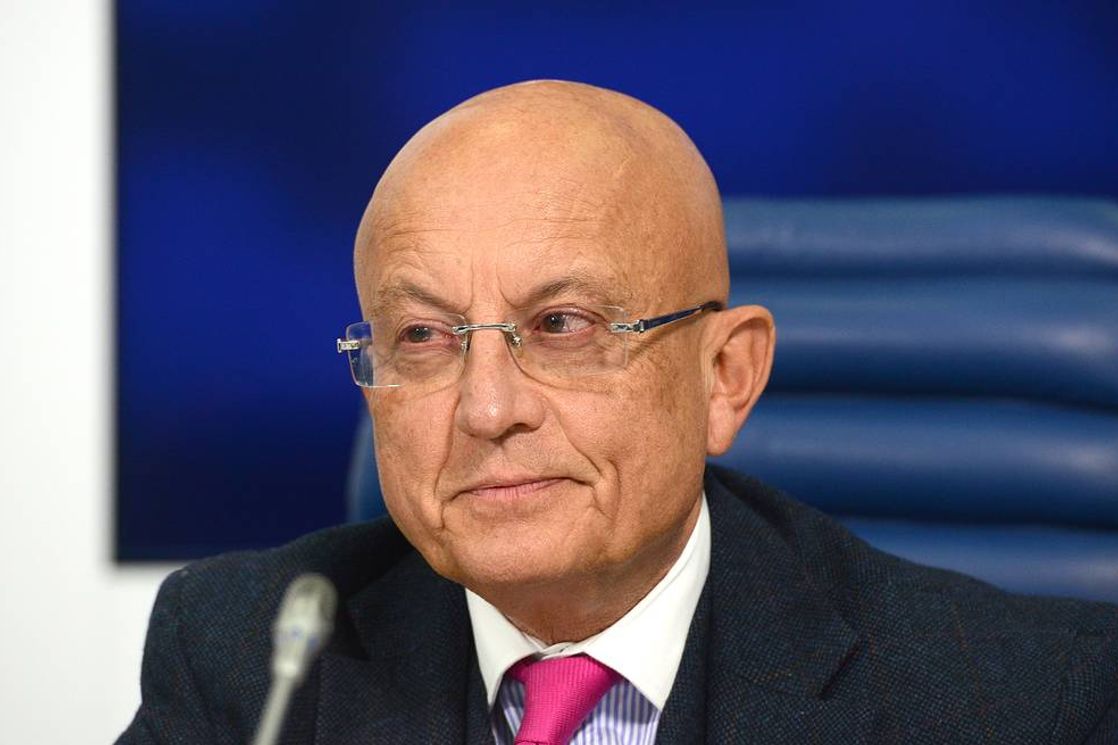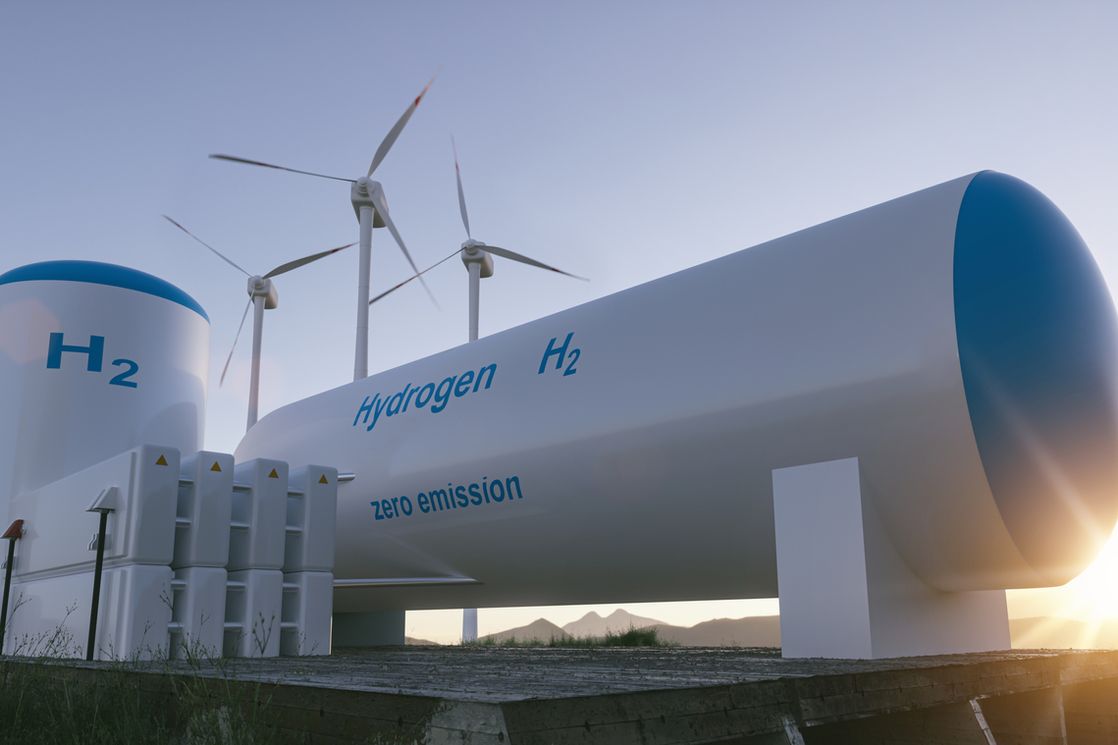‘Idea of Environmental Protection Should Become Part of Foreign Policy’

To improve its global competitiveness, Russia needs an independent environmental agenda along with a concept for environmental protection, and it makes sense to suggest a ‘global clean deal’ to Europe. A report outlining this, prepared by a team of experts from HSE University, the Ministry of Foreign Affairs and environmentalists, was presented at TASS.
Until recently, environmental protection seemed like an ‘opportunist’ movement, and the ‘green’ agenda was viewed as ‘hostile’ in official documents, said Sergey Karaganov, Dean of the HSE Faculty of World Economy and International Affairs, as he presented the report ‘The Turn to Nature: The New Ecological Policy of Russian during the ‘Green’ Transformation of the World Economy and Politics’ on April 12th, 2021 at TASS. He believes this policy will continue to be seen as hostile until the country elaborates its own environmental policy. The idea of protecting nature should be an integral part of foreign policy, although currently, Moscow poorly exploits this agenda and is failing to suggest its own ideas.

At the same time, Russia also needs an internal transformation of its environmental policy. Today, protective measures are not part of one overall concept and are being poorly used to create a new agenda, one which could create a new patriotic idea bringing together people with different views.
Igor Makarov, Head of the HSE School of World Economy and one of the key authors of the report, believes that environmental protection is rapidly becoming the most important issue in the 21st century. The main topic of the report is Russia’s future position in a world where the green agenda will play a key role. Lagging behind in terms of development and implementation would mean new problems and threats.
We are not suggesting universal policies, but we hope to launch a discussion on the search for Russia’s position in the new ‘green’ world, in the international division of labour
An ecologically-oriented foreign policy is impossible without a corresponding internal one, and Russia will have to become a responsible ecological state, Igor Makarov believes. The reason for many global problems is unlimited consumption, and without changing this model in rich countries, it is impossible to solve environmental issues. The environmental agenda should be linked to the social one, with additional taxes implemented for those who consume excessive amounts of natural resources.
Igor Makarov said that the environmental policy should become a method of diversifying the economy, so that Russia can thrive in a world that is aiming to decrease the consumption of fossil fuels. The resource economy can help develop Siberia and the Far East, but should become more innovative and technologically advanced. Natural resource management should be based on human capital development.
To launch its turn towards nature, Russia’s environmental policy must be based on transparent ecological information; it should openly talk about problems and possible solutions. According to Igor Makarov, this will involve expert support that is both qualified and impartial. Wider state policy, including social and fiscal, will also be seen from the perspective of environmental policy.
The environmental agenda will be the cornerstone of future state policy
Dmitry Suslov, Deputy Director of the HSE Centre for Comprehensive European and International Studies (CCEIS), believes that Russia’s environmental agenda should be different from the Western one and emphasize Russia’s contribution to the solution of the global ecological problems; it is capable of reinforcing the country’s status in the global arena, and should not be limited solely to the problems of climate and global warming. It should be focused on fairness, Dmitry Suslov believes, unlike the Western approach, which blames carbon-intensive manufacturers for climate change. At the same time, carbon-intensive product manufacturers and consumers in the West should equally pay for emissions.
Dmitry Suslov called the current EU’s ‘green’ policy a tool of competition rather than a method to decrease emissions. The European Union has made considerably advancements in this matter and is now looking to make other countries pay the EU. Russia should insist on a fairer green agenda, but this agenda should be promoted not by the country alone, but together with its BRICS and SCO partners.

He believes that Russia should offer the EU a ‘global clean deal’, and in particular, count EU countries’ investment in clean technologies in other countries as a contribution to carbon neutrality. Russia can also suggest initiatives to organize the production of power hydrogen and its delivery to Europe. Brussels will most probably refuse, but Moscow should suggest it nevertheless, seizing the environmental agenda and putting the EU in a defensive position. As a result, Dmitry Suslov believes, it will be harder to introduce carbon fees.
At the same time, dialogue with the U.S. should be intensified on environmental protection, particularly in the Arctic, where the climate is warming is three times faster than the global average, and to slow down confrontation between the two countries. The expert believes that environmental challenges for Russia are both a risk and an opportunity at the same time.
If we look at ecology as something of secondary importance, the country will face economic stagnation, growing risks in health care, and a worsening living environment
Such a scenario would also lead to failures in foreign policy
Alexei Drobinin, Acting Director of the Russian Ministry of Foreign Affairs Foreign Policy Planning Department, agrees that the problems of environmental protection and climate change are gaining foreign policy and geopolitical aspects. It is necessary to have a set of scenarios and recommendations for decision-making in the near future and for the medium-term. He mentioned the need to involve experts in preparing foreign policy decisions. Mr. Drobinin believes that the Russian environmental policy should be based on the national interest, while international experience should be considered at the same time.
Igor Bashmakov, Executive Director of the Centre for Effective Energy Use, believes that to reduce pollution, it is necessary not to limit consumption, but instead to promote a rational approach. The key method for this, he believes, is the development of new technologies, rather than altering behaviours.
Russia has been developing very slowly on a raw-material model over the last years, Mr. Bashmakov concluded, and the country hasn’t managed to accelerate its growth by means of energy resources. It is essential to look for new drivers of growth, and green technologies may provide a solution. Investment in the low-carbon economy improves the pace of development, and the return on such investments is much higher than on investment in the resource-based economy. It is important that the green agenda is brought to the foreground and stops being a decoration that is not considered important, Igor Bashmakov said.
The return on investment in decreasing emissions in Russia will be high. According to experts’ calculations, an energy-effective overhaul in, for example, Kemerovo, will return a significantly bigger effect than anywhere else in Europe. ‘Russia’s symbol should be the birch, not a blast furnace or coal-fired power station’, Igor Bashmakov concluded.
Sergey Karaganov completed the discussion and mentioned that any environmental policy should work for Russia’s interests. For a country such as Russia with its huge natural riches, environmental protection should be part of a bigger concept, which is able to bring together people of different views.
See also:
Communication Can Increase Public Concern about Climate Change
An international team of researchers including scientists at HSE University have tested 11 communication strategies aimed to encourage pro-environmental behaviours. The sample included nearly 60,000 individuals from 63 countries. While interventions aimed at reducing psychological distance from climate problems proved to be effective, those targeting behaviours which require more effort, such as tree-planting or reducing one's carbon emissions, were not as successful. The study findings have been published in Scientific Advances.
‘Ecology Provides the Best Opportunities for Professional and Personal Development of Young People’
In early May, the HSE Institute of Ecology and the International Children's and Youth Award ‘Ecology is Everyone's Business’ held a joint seminar in Dagestan, where they discussed the launch of youth environmental projects for federal and international competitions. At the meeting, the Institute's experts presented methods of organising project activity in the field of ecology and sustainable development for educators and young people in Dagestan. Teachers and students from more than 50 schools, colleges and universities of the republic took part in the event.
‘Earth Is Our Only Home; We Must Preserve It’
The Green HSE student organisation recently held the ‘Green Conversation’ festival at the Cultural Centre on Pokrovsky Bulvar. At the event, participants discussed the planet’s main ecological problems and the steps required to start building a green future today.
Pivot to the East: A Comprehensive Study of the Cultural and Civilisational Centres of the Non-Western World is the Top Priority
China and the Chinese world, South Asia, Southeast Asia, the Arab countries, Iran, Turkey, Central Asia and Africa are gaining new significance in Russia’s foreign policy. However, we do not know enough about the Eastern countries. It is necessary to change the priorities in education, starting from grammar school. Prospects for the development of domestic Oriental studies in the context of the new stage in the development of the system of international relations were discussed at a round table at HSE University.
‘I Admire HSE Students’ Eagerness to Learn, to Discuss, to Broaden Their Perspectives’
Robert Romanowski was a ‘Digital Professor’ at HSE University in November 2021. In his interview for the HSE News Service, he talked about the specifics of online teaching, his course on Strategic Branding, and the skills that are essential for marketing professionals today.
Russia and Africa: Time to Expand Cooperation
There is major potential for economic and humanitarian cooperation between Russia and African countries. Particularly, Russian organisations and universities can help transfer competencies and knowledge in the fields of agriculture, energy, industrial production, environmental management, climate change, and public administration. Experts and representatives of African embassies in Russia discussed these issues at the round table ‘Russia-Africa Sharing Knowledge’ hosted by HSE University.
The Brain in Space: Investigating the Effects of Long Spaceflights on Space Travellers
As part of an international project conducted with the participation of Roscosmos and the European Space Agency, a team of researchers used differential tractography to analyse dMRI scans ofcosmonauts’ brains and found significant changes in brain connectivity, with some of the changes persisting after seven months back on Earth. The paper is published in Frontiers in Neural Circuits.
HSE University-Perm and the Training Centre of the Uzbek Ministry of Finance Sign Cooperation Agreement
HSE University in Perm has become the first academic partner of the Training Centre under the Ministry of Finance of the Republic of Uzbekistan. The parties have signed a cooperation agreement in education and research.
Researchers Explain How Massive Methane Emissions Affect Warming in the Arctic
Expeditions to the Eastern Arctic and Kara Seas investigated the thermal properties of bottom sediments. Numerous zones of bubbling methane flux were discovered in the shelf of the Laptev Sea and the East Siberian Sea, which researchers believe is affecting climate warming in the Arctic. The study has been published inMarine and Petroleum Geology.
Salt Eats Ice: Researchers Name the Reasons Behind Underwater Permafrost Vulnerability
A team of researchers has studied ice-containing sediment on the East Siberian Arctic Shelf. The researchers proved that the melting of underwater permafrost is caused not only by the warming of sea water, but also by migrations of its salt ions (mostly NaCl). The HSE News Service reports on this and other studies conducted by the HSE Institute of Ecology.


